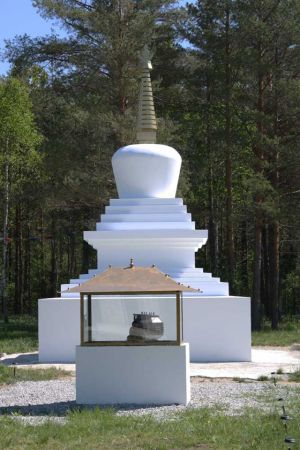ANIMAL SLAUGHTER
Note the following stanza from an ancient Buddhist poem, linking animal slaughter to bad karma, particularly insurrection and warfare: “For hundreds of thousands of years, / the stew in the pot / has brewed hatred and resentment / that is difficult to stop. / If you wish to know why there are disasters / of armies and weapons in the world, / listen to the piteous cries / from the slaughterhouses at midnight.”
Erricker: 117
In Mahayana Buddhism, violence and warfare can never be ended as long as animal slaughter and other forms of violence (castration, forced feeding, etc.) against the animal realm continue unabated. To seek world peace while continuing the slaughtering of animals for food is no different from trying to cool a boiling pot by fanning the top, all the while keeping the flame going underneath.
Note: See also the following excerpt about Dr. Temple Grandin, a cattle expert who devoted her life to designing humane slaughtering systems that would at least drastically reduce pain and fears for the animals: “When a … humane system was installed in Alabama a few years ago, Dr. Grandin operated the hydraulic gears of the restraining box [where the animal was going to be killed] herself [as a test run], concentrating on easing the animal into the box as gently as possible. ‘When I held his head in the yoke, I imagined placing my hands on his forehead and under his chin and gently easing him into position,’
she wrote in her book. ‘Body boundaries seemed to disappear, and I had no awareness of pushing the levers.’ She compared it to a state of Zen meditation: ‘The more gently I was able to hold the animal with the apparatus, the more peaceful I felt. As the life force left the animal, I had deep religious feelings. For the first time in my life logic had been completely overwhelmed by feelings I did not know I had.
A slaughterhouse certainly ‘makes you look at your own mortality,’ ” said Dr. Grandin. “Those animals just walk into the chute and it’s all over. If you see them cut up, they’re so fragile inside. People are made of the same stuff. ”
